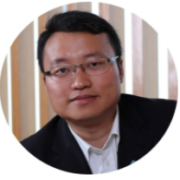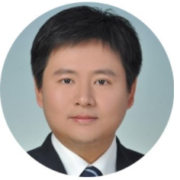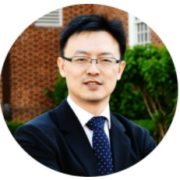Conference

After the epidemic, Chinese Present Xi Jinping pointed out that “mankind is experiencing the most serious global public health emergency since the end of the Second World War.” The World Health Organization convened a meeting and proposed six measures to deal with the epidemic. Among them, it mentioned the development of cities that incorporate health into all aspects of urban planning, from sustainable transportation systems to healthy housing, In other words, sustainable transportation systems and sustainable urban development are important aspects of responding to the epidemic.
Xiaoming ZHANG, one of the directors at Guangzhou Urban Planning & Design Survey Research Institute as well as the host of the event will discuss in depth how the urban transportation system can be diversified in the post-epidemic era through a dialogue with the guests. The pattern of value recognition, mutual trust, and cooperation between the subjects realizes the people’s needs of “justice and fairness; livable and suitable for work; a sense of gain, happiness, and security”. Specifically, how does urban traffic return to the origin of serving people, matching people’s sustainable mobility, shifting from focusing on traffic capacity to improving travel accessibility, fairness, and sustainability, and paying more attention to the integration of multiple travel modes with the improvement of the travel environment, through the provision of fair and inclusive city services, it is ensured that everyone enjoys basic transportation services, especially the elderly, children, the disabled, and low-income groups, providing personalized travel services.
Discussion topics will include but are not limited to the 15-minute neighborhood, cycling return, e-bike grooming and management, street space optimization, child-friendly cities/communities, zero-elevation cities, shared mobility, customized public transportation, Maas, electrification of buses, oil cap, low-emission zone and etc.
The speakers will share their experience and projects focus on Asian cities, especially Chinese cities, like 15 minutes neighborhood plan in Tianjin, street quality improvement in Guangzhou, the victory of the electric bus revolution, and lessons learned from Shenzhen, the child-friendly city of Changsha, E-bike development and management lessons from Nanning, parking reform of Bejing, low-emission zone in Jinan.

Xiaoming Zhang is the director of the Institute of Transportation Planning and Design, the director of Future City Laboratory, and the senior engineer at Guangzhou Urban Planning & Survey Design Institute. He is also a standing director of the Urban Traffic Branch of China Highway and Transportation Society, a member of the Youth Expert Group of China Urban Traffic Planning Academic Committee, and the director of Guangzhou Urban Development Research Association.
His main research areas include urban transportation planning, transportation hub planning, and design, and transportation logistics planning. He has presided over or mainly participated in more than 100 urban planning and scientific research projects, won more than 30 national, provincial (ministry), and municipal planning and design and technology awards, and published more than 20 papers.

Ying Zeng is the deputy chief engineer of the Transportation Planning and Design Institute at Guangzhou Urban Planning & Design Survey Research Institute. He presided and mainly participated in the completion of more than 200 urban planning projects, research dissertations, and technical work.
His achievements have won more than 30 national, provincial and municipal awards in the field of urban planning and urban design. He has published more than 30 academic papers and participated in writing 6 books. His main research interests are road traffic refinement design, detailed traffic planning, traffic special planning and evaluation, comprehensive traffic system planning, non-motorized traffic planning.
Ying received his Transportation doctoral degree from Tongji University. He is a visiting scholar at the University of California, Davis. He is a Chinese national registered urban planner and registered consulting engineer.

Xiaomei Duan, Masters in Traffic Engineering, is currently Chief Engineer of the Guangzhou Municipal Engineering Design and Research Institute.
Xiaomei has worked on numerous urban transportation projects in many cities in China and the Asia Pacific region, has rich experience in the planning, design and implementation of successful BRT projects in the region. She has also worked quite extensively in the region, on sustainable urban transportation projects in Vientiane (ADB), Kuala Lumpur (SPAD), Johor Bahru (IRDA), Metro Manila (ADB), Medan (ADB), Jakarta (ITDP), Ulaanbaatar (ADB), Indonesia (FEM), and Addis Ababa. She is part of the expert team pool in the ongoing GIZ funded project to plan BRT early studies in Bandung, Semarang, Pekanbaru and Batam (2019).
During the last 15 years, she has focused on and has been in charge of the planning and design of several famous BRT projects and Green transportation projects in China including Guangzhou, Lanzhou, Nanning, Fuzhou,Yanji and Yichang BRT. She is now a nationally accredited Professor level Senior Engineer, and has worked as a consultant for Asian Development Bank, and has vast experience in presenting in many local and international conferences.

An Jiang is the vice president of the Huxiang Branch of Zhongyou Design Co., Ltd. Senior Engineer Master of Traffic Information Engineering and Control.
He has been engaged in traffic design, traffic planning and traffic research for fifteen years. He has rich planning and design experience in road network planning, highway and interchange, intelligent transportation, rail transportation, small and medium-capacity systems. He won three national excellent survey and design awards, eight provincial excellent survey and design awards, and ten municipal excellent survey and design awards.
An is a monitoring expert of Hunan Provincial Development and Reform Commission, Changsha Natural Resources and Planning Bureau, Changsha Housing and Urban Development Bureau, Xiangjiang New District National Land and Urban Planning Bureau, and Wangcheng District Transportation Professional Accreditation. He is also a member of Hunan Provincial Government Procurement, Hunan Provincial Comprehensive Bid Evaluation Expert Pool as well as a monitoring expert for Changsha City New Intelligent City.

Yang Lu holds a Ph.D. and M.S. degree in Civil Engineering from the University of Maryland, College Park. Since 2017, Mr. Lu works as Transport Specialist at the Transport and Communications Division, South Asia Department, Asian Development Bank. He works in Bangladesh, Bhutan, India, Nepal, and Sri Lanka and serves as transport country focal for Bhutan.
As a team leader, he processed 3 projects (ADB loan amount: $540 million) in the road sector and administrated 6 projects (ADB loan amount: about $800 million) in the sectors of road, trade facilitation, and regional integration. As a team member, he supported the processing of 10 projects (ADB loan/TA amount: over $4.4 billion) in the sectors of road, urban rail, aviation, and COVID-19 response, focusing on economic and financial analysis, project administration, cost estimates, and procurement.
Before ADB, Mr. Lu worked as a consultant for World Bank in Washington DC and held variously positions at Maryland State Highway Administration.

Shuang Wang is a Ph.D in Environment and Resources. She has long been engaged in research on green transportation strategic planning.
She has rich research experience in sustainable transportation, transportation energy saving and emission reduction, green transportation city and green travel. She has presided over and participated in more than 40 national and provincial (ministerial) level research projects and won 4 national and provincial (ministerial) level awards. As the main author, she has authored more than 10 publications such as “Annual Report on Green Transportation Development,” “China Transportation Low Carbon Development Strategy Study,” and the latest publication “Transportation Carbon Peaking and Carbon Neutral Knowledge Interpretation” gained wide attention during the National Energy Conservation Promotion Week in 2021.